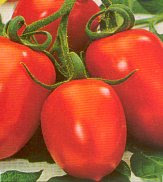 Most plant catalogs and on-line businesses deal in reputably grown items, but a few are selling plants that are either officially invasive or are termed "thugs" in our gardens. Code words to watch for?
Most plant catalogs and on-line businesses deal in reputably grown items, but a few are selling plants that are either officially invasive or are termed "thugs" in our gardens. Code words to watch for?• Spreads fast
• Great for erosion control
• Covers ground
• Fast growing
• Assertive
• Grows a lush hedge in only two years
• Forms dense colonies
• “You can’t kill it!”
If you see these phrases in plant descriptions, stay away!
Giant hogweed in Mahopc (Croton Falls Road)
two years ago - has been controlled by Highway Dept. Sold
in the U.S. as an ornamental plant since the
1920s!





